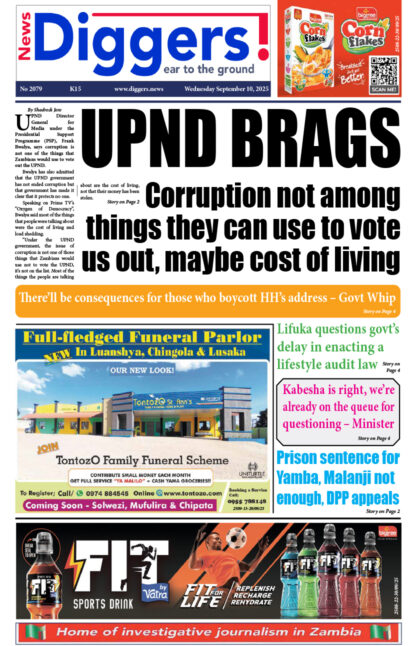HOME Affairs Minister Stephen Kampyongo says the Ministry has postponed the date of commencement of phase two of the ongoing mobile NRC registration due to delays in delivery of key equipment required to complete the exercise.
Speaking during a press briefing Kampyongo said the postponement was caused by the delays in the delivery of key equipment of the first few days of the exercise in phase one.
He, therefore, said that phase two would commence on September 10 and not September 1 as earlier planned.
Phase one of the mobile registration is expected to cover Luapula, Northern, North-Western, Copperbelt and Eastern provinces, while phase two will cover Western, Southern, Lusaka, Central and Muchinga provinces, respectively.
“Due to unforeseen delays in delivery of some key equipment, the first few days of the exercise started slowly with teams only working close to the established district centres to allow for access to equipment that was only available at the district levels. During the seven days that followed, the Department (of National Registration, Passport and Citizenship) worked tirelessly to ensure that the rest of the much-needed equipment was on the ground in every district. The exercise gained momentum by the 8th and 9th of August when the teams were finally deployed in the far-flung areas of the provinces,” Kampyongo said.
“Initially, the Ministry had planned to overlap the two phases in order to finish the exercise at least 10 days before the Electoral Commission of Zambia starts voters’ registration on the 19th of October. However, taking into the slow start and the challenges of sharing of equipment and logistics, which the overlap may cause, the Ministry had decided to postpone the starting date for phase two of the exercise from the 1st of September to the 10th of September, 2020. Therefore, phase one will be expected to wind up by the latest, 9th of September, the last day being the 10th, while phase two will commence on 10th September to end 40 days later on the 19th of October, 2020. The Ministry of Home Affairs has already started the distribution of materials and equipment to the phase two provinces. The Ministry regrets any inconvenience this postponement has caused.”
Kampyongo said the Ministry would do an assessment at the end of the exercise on the areas that were affected by the delay in phase one.
“As I alluded, there was a slow start in the first days and this was due to the challenges posed by the COVID-19 in the way we received some of the equipment that was coming out of the country. At the end of phase one, an assessment will be done to see which areas were negatively impacted upon by that slight delay. Then, we can see what we can decide to do in order to cover up and ensure that people are not left behind in those areas that could have been affected,” said Kampyongo.
“The whole point is to ensure that the phases run for 40 days as allocated to each phase without disturbance. Some of the equipment that will come out from the first phase is the same equipment that will be used in phase two. So, we don’t want phase two to be affected by the delay in terms of delivering the equipment. So, we shall do an assessment at the end of the exercise and an evaluation will be done. Premised on that, we will decide on how we will cater for those areas that will be negatively affected.”
The Ministry has projected to issue approximately 1.5 million new NRCs during the 2020 mobile issuance exercise ahead of next year’s general election, with 770,000 in phase one and 730,000 in phase two.
It is being conducted in a two-phased approach of 40 days each due mostly to the time constraints.





